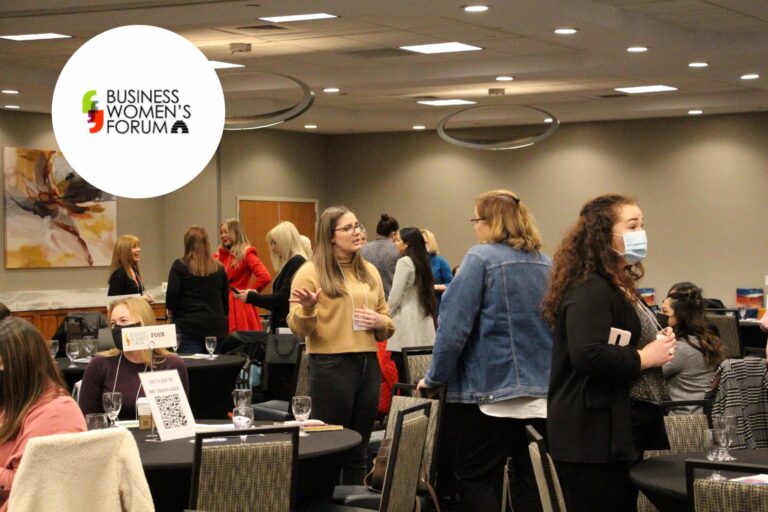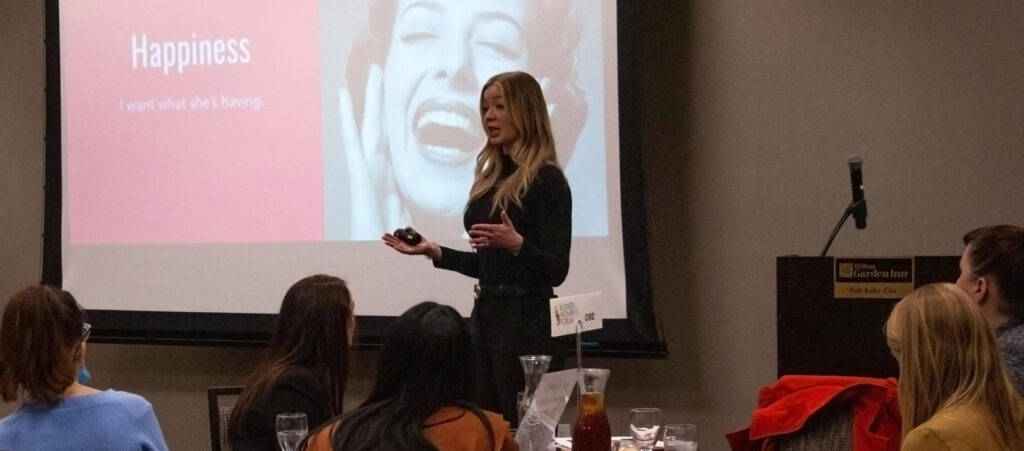“I am not here to be pretty for you. I am just trying to survive.”
Elizabeth McMillan, director of communications at the Utah Department of Transportation, recalled one of the most difficult times in her life – her husband had just been diagnosed with stage 4 cancer and work was busier than ever as she took on a new position.
As McMillan passed her coworker in the hall, he said, “Why don’t you smile more? You know, you’d be so much prettier if you smiled.”
Reflecting on that encounter, McMillan said, “I wanted to lash out at him like a tiger in a cage. But instead, I walked away in silence before I said something hateful. And the truth was, I was feeling shame.”
With a master’s degree in positive psychology, McMillan had spent years studying happiness. However, a fundamental principle changed McMillan’s perspective: happiness is an emotion, meaning it is a state, not a trait.
“Emotions, by definition, are temporary,” said McMillan. “Happiness is one of many emotions that you’ll feel. And they’ll all come and go.”
“Happiness is an unattainable goal as a permanent state. And reaching after it is really hard. Even just valuing it as something you don’t have enough of can actually make things worse. It’s okay to not be happy.”
So, what is the definition of happiness? McMillan explained that there are many reasons why people want to be happy — it’s innate, better for your health, and just feels good.
There are two categorizations of happiness: hedonic happiness – described as cuddles and ice-cream — and eudaimonic happiness — described as feelings of joy. Whereas hedonic happiness is short-term, eudaimonic happiness comes from things that bring fulfillment (for example, living a life that feels valuable, meaningful, and purposeful.) Both types of happiness are beneficial.
However, instead of striving for happiness, McMillan believes wholeness and optimism are better goals.
“Wholeness is embracing those more complete experiences of eudaimonia and being willing to sit with discomfort,” said McMillan. “We’ve got plenty of opportunities to practice that right now. It’s inevitable that we’re going to get beat up – that’s just life.”
“The harder parts are actually after the fight, when you’re healing,” McMillan continued. “Recognize that you’re still being a fighter when you’re healing, or even when you’re lying on the ground, because you can’t get back up yet. That takes courage. That takes strength. So, don’t undersell yourself. That is part of the fight.”
Emotions are normal, natural reactions. Rather than keeping them bottled up inside, McMillan suggests expressing them in a constructive way. Instead of saying, “I shouldn’t do that,” ask yourself, “Where am I trying to get to, where do I want to be, and what do I want to feel?” “Is the way I’m going to react helping me get there and is it productive?”
“We call emotions feelings because we feel them in our body,” said McMillan. “If we refuse to feel them, they are going to hang out in your body as long as they want to, they will demand to be felt and heard.”
Optimism entails acknowledging the core values that are deeply true, wonderful, permanent and make you who you are. Optimism stems from strength, not happiness.
“You have the strength to do whatever you need to do,” said McMillan “… to sit with discomfort or pain, to pursue any audacious goals for 2022 or beyond and to ask for help from others. You just need to be brave. Be brave enough to use that strength for whatever purpose you need right now.”
Join us for the next Business Women’s Forum on March 15, 2022 — Women’s Equality in Utah: Why Utah Is Ranked as the Worst State, and What Can Be Done. In this presentation, Dr. Susan Madsen will discuss the results of a white paper she co-authored, commissioned by Zions Bank, that provides a detailed analysis of 17 key indicators of women’s equality. She will also outline the top 10 recommendations on how to move the needle in Utah, both individually and collectively. As Utahns join to find ways to strengthen the impact of girls and women more effectively, more Utah women and families will feel connected to our state’s well-known mantra “This Is the Place.”
Learn more here.



